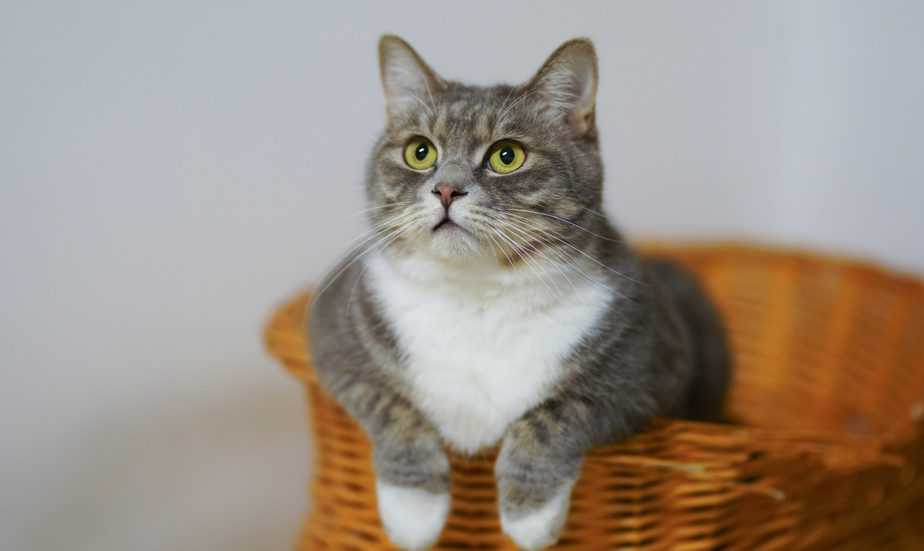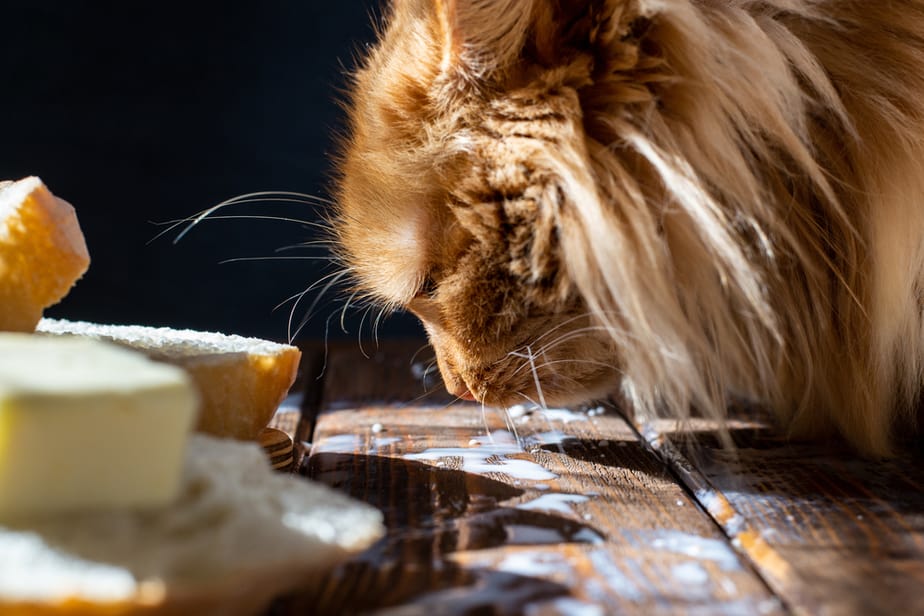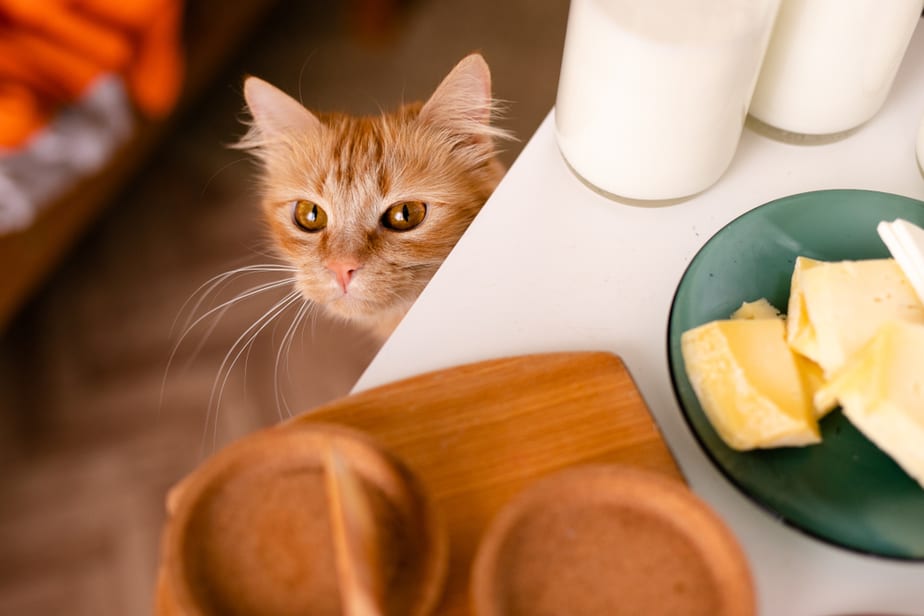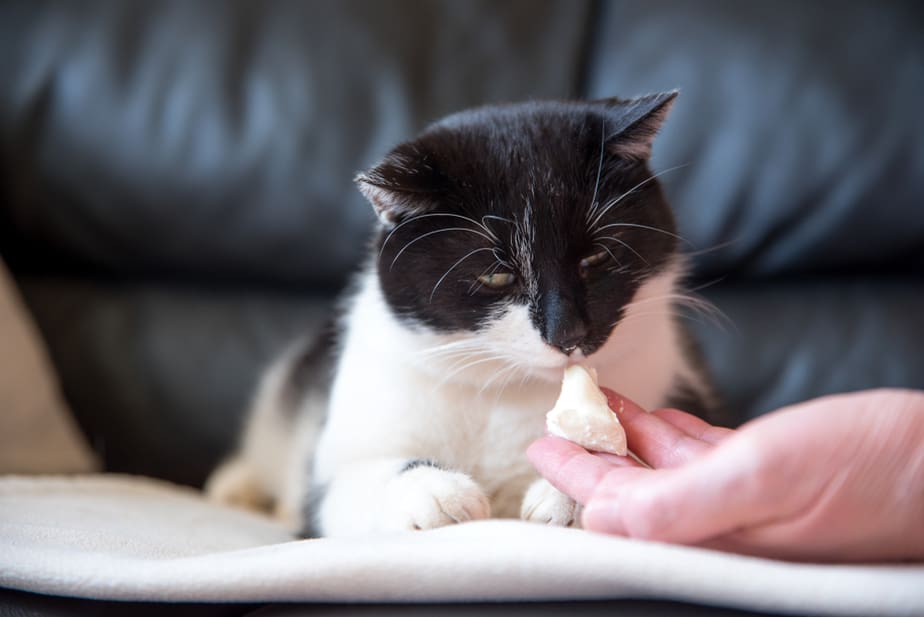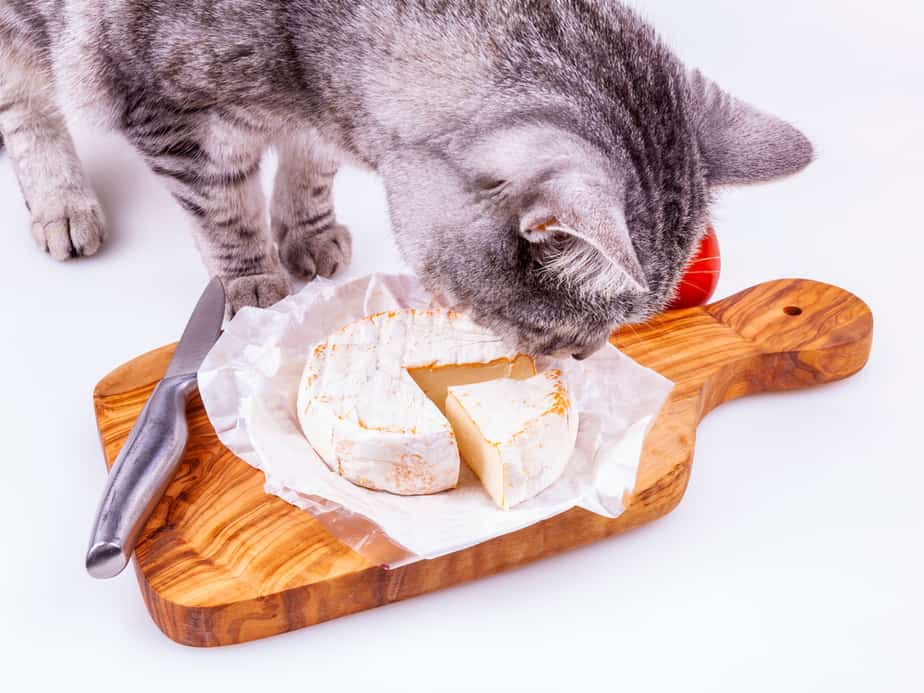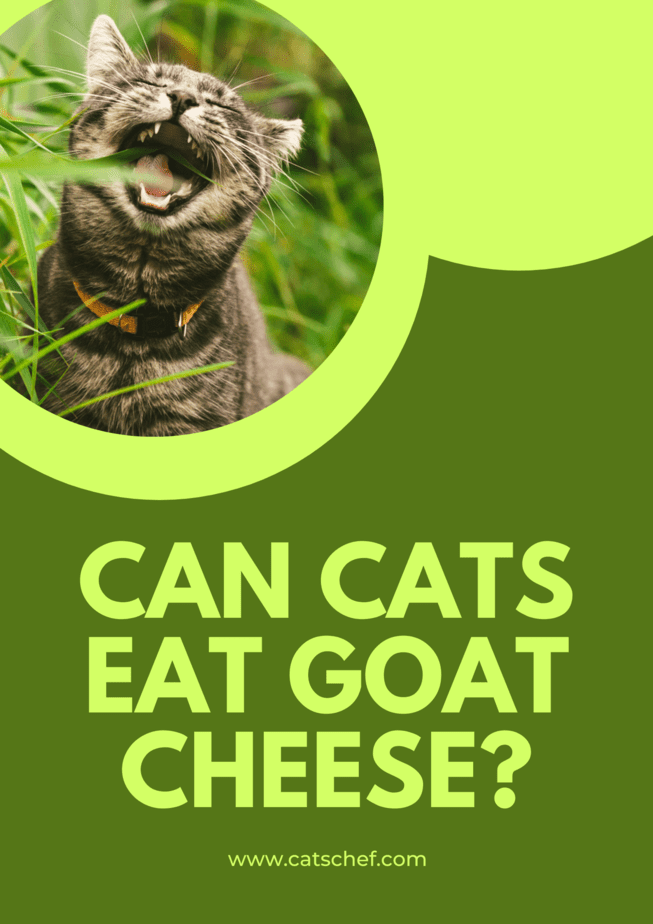📖 Table of Content:
Love it or hate it, you can’t argue that goat cheese is the GOAT in the feline world. As soon as your feline friend hears the crinkling sound of the wrapper, she comes flying into the kitchen begging for a bite. So, can cats eat goat cheese?
There’s no doubt in your heart that your four-legged friend would give anything in the world to face plant into a bowl full of goat cheese, goat milk, or even cow milk. But, you always end up getting mixed signals in the form of those demonic sounds coming from her tummy afterward!
So, you can’t help but hop onto Google hoping to find some clarity. Can cats eat goat cheese? Can cats drink goat milk? And most importantly, can they have any other dairy products?
Well, our friends over at the ASPCA (American Society for the Prevention of Cruelty to Animals) say goat cheese is completely safe for feline consumption! But, before you and your furry friend put your party hats on…
Goat cheese can be given to cats as a treat in moderation. While cats are lactose intolerant, goat cheese is lower in lactose than cow’s milk cheese, making it a safer option. However, it should not be a part of their regular diet and should be given in small quantities.
An occasional nibble or two shouldn’t cause any serious health issues. But, large amounts of cheese might leave your four-legged friend rushing to her litterbox.
You see, the relationship between cats and their favorite cheese is quite a complicated one. Here’s what you need to know about it before making any significant changes to your cat’s diet.
So, can cats eat goat cheese?
Being a cat owner and all, you probably already know that cats are obligate carnivores. They require heaps of meat, animal protein, and animal-sourced nutrients in order to survive and thrive.
Goat cheese comes from animals. Goat cheese contains animal protein. So, that must mean that cats can eat goat cheese without any repercussions, right? Well, not really! Let’s just say things are a bit more complicated than that.
Despite the notorious myth that cats enjoy very few things in life as much as they enjoy a simple bowl of milk, most cats are actually lactose intolerant.
Their digestive system doesn’t contain the lactase enzyme that’s necessary to break down the lactose in milk. That might sound like a bunch of gibberish, but…
It’s incredibly important to understand that excessive amounts of goat cheese and other dairy products might cause some serious damage to your cat’s digestive system.
Goat cheese benefits
Back to your “can cats eat goat cheese” question- cats can eat goat cheese, but only as an occasional treat. A small piece of cheese every now and then shouldn’t cause any adverse reactions, regardless of the kind of cheese you decide to feed your furry friend with.
That being said, goat cheese might be your best option because it contains less lactose than all the other ones (along with the non-dairy cheese, of course). Not only is it less harmful to your furry friend, but it also contains a bunch of nutrients.
This mouth-watering treat is packed with vitamins, minerals, and healthy fats that might have a positive influence on your cat’s health.
For example, vitamin A is an excellent antioxidant that can boost your cat’s immune system and protect her against numerous diseases. And vitamin B is essential for your cat’s healthy cognitive function, nervous system, and digestive tract.
Minerals like calcium, phosphorus, copper, and iron are quite handy when it comes to supporting the health of your cat’s bones, teeth, muscles, and pretty much everything else.
And, we can’t forget about protein which is your cat’s most important source of energy. Your cat’s liver, unlike any other animal’s liver never stops breaking down protein, making sure to maintain the blood sugar levels and turning it into energy.
So, if your cat spends most of her day running around and crashing everything in her way, you can support her mischievousness with a paw-sized nibble of goat cheese.
Let’s be honest, this tasty little treat doesn’t sound so bad when you think about all the benefits your feline friend might get from it. But… There’s always a but when we’re talking about feeding human foods to your cat.
Goat cheese risks
Goat cheese might be a great source of nutrients, and it might be approved by the ASPCA, but… Throwing it in your cat’s diet like it’s nothing could lead to certain digestive problems. So, let’s start from the beginning.
Most adult cats are lactose intolerant which means they shouldn’t drink milk from other animals or feast on dairy products.
Goat milk and goat cheese have high fat content and high lactose content. This makes them pretty harmful in the long run.
Kittens, on the other hand, aren’t lactose intolerant. They have a much better chance of digesting that rogue piece of goat cheese they found on the kitchen floor.
Does that mean you should feed your kitten goat cheese? No, her mother’s milk is still a much better choice.
Unfortunately, feeding cheese to your cat might lead to some serious digestive issues including upset stomach, constipation, diarrhea, and vomiting.
And on the off chance you don’t address these issues in time, she might even develop poor immunity.
Since goat cheese has a high fat content, your cat might even experience a sudden weight gain. While having a chunky kitty might seem like great fun, feline obesity can easily cause an array of problems and diseases.
A small amount of cheese shouldn’t cause any harm to your curious creature. But, it’s better to stay on the safe side and avoid dairy products as much as you can.
What about other types of cheese?
Grab your favorite four-legged friend and say “Cheese!” because we’re about to embark on a whole different world of dairy overload.
We already mentioned this, but goat cheese contains the least amount of lactose when compared to other types of cheese. This makes it slightly less harmful to your cat’s digestive tract, but that doesn’t mean you shouldn’t explore other options.
All cats are different which means that all cats react differently when served with a plate of paw-licking cheese treats. Give your vet a quick call and check if you can experiment with some of these popular choices.
Soft cheeses like cottage cheese, cream cheese, feta cheese, blue cheese, and mozzarella are typically higher in lactose which makes them a little less suitable for your furry friend.
Additionally, a lot of soft cheeses are made with raw milk which might contain certain bacteria your cat’s tummy isn’t able to digest.
Some, like blue cheese, might even contain mold which is considered a delicacy among humans, but not as much among cats.
Hard cheeses like parmesan, swiss, cheddar cheese, and string cheese are typically lower in lactose which makes them a little less harmful to your furry friend.
As long as you don’t include any of them in her regular diet, you have nothing to worry about. Always consult with your vet before making any significant changes to your cat’s diet.
An occasional bite or two of goat cheese (or any other cheese) shouldn’t cause any harm to your cat. But, it’s so much better to be safe than sorry.
So, cats can eat goat cheese, as long as they eat it in small amounts and in moderation.
